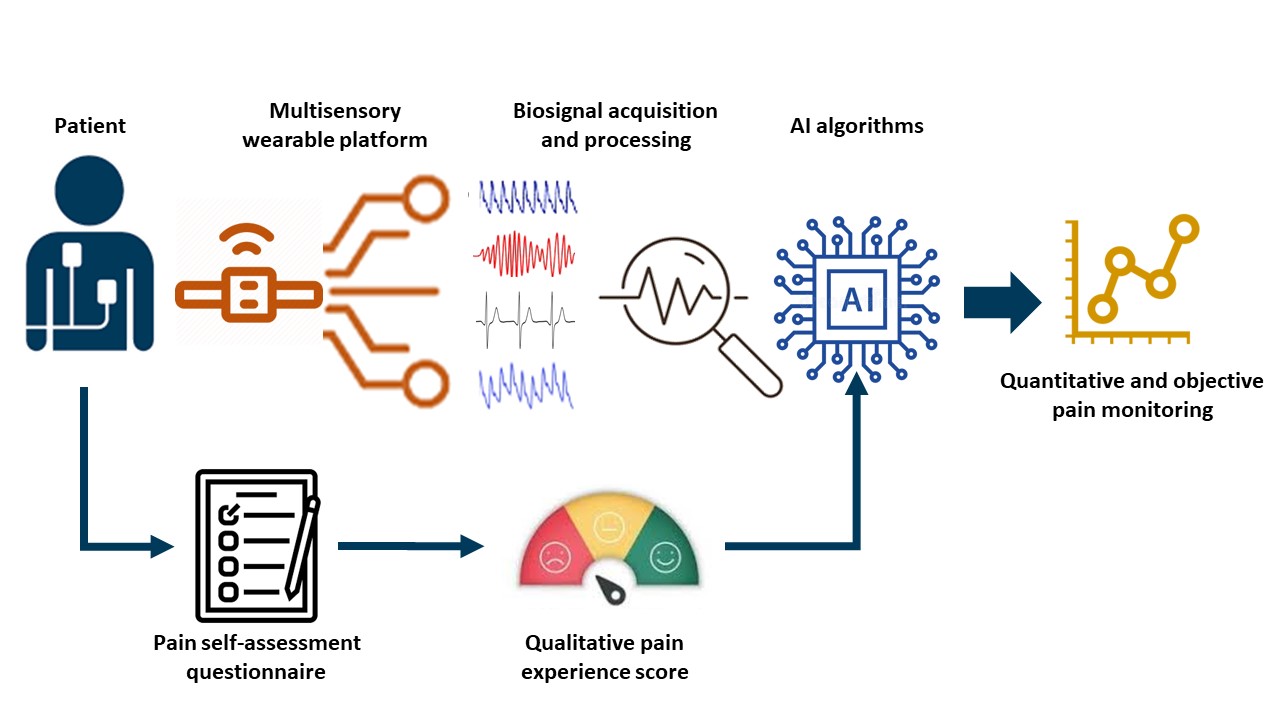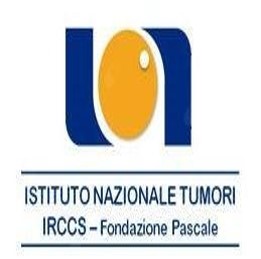

AFFILIAZIONE
istituto tumori -irccs “fondazione pascale”
AUTORE PRINCIPALE
Ing D’Antò Michela
VALUTA IL CHALLENGE[ratingwidget]
GRUPPO DI LAVORO
Ing D’Antò Michela – istituto tumori -irccs “fondazione pascale”, napoli
Dr Cuomo Arturo – istituto tumori -irccs “fondazione pascale”, napoli
Dr Cascella Marco – istituto tumori -irccs “fondazione pascale”, napoli
Prof. Cutugno Francesco – università degli studi di napoli “federico ii”, napoli
Prof. Romano Maria – università degli studi di napoli “federico ii”, napoli
Ing. Ponsiglione Alfonso Maria – università degli studi di napoli “federico ii”, napoli
Prof Amato Francesco – università degli studi di napoli “federico ii”, napoli
AREA TEMATICA
Applicazioni innovative di bioingegneria (premio miglior tesi di dottorato)
ABSTRACT
Quantitative and objective pain monitoring in oncology is still an open research challenge. Based on literature estimates, one-half of all cancer patients suffer from pain [1], and one out of three cases has inadequately controlled pain [2], which can result in lower quality of life, reduced adherence to therapy, and, not least, increase in healthcare expenditure due to oncological pain relief procedures [1]. Therefore, there is an urgent unmet need for novel methods and approaches to identify measurable, reliable, and appropriate indicators to support quantitative assessment and proper management of cancer pain. According to a recent review [1], biosignals can represent an opportunity for the objective quantification of cancer pain. However, despite these research efforts, there is the lack of a standardized approach for quantitative pain assessment and of a shared protocol for pain management for both hospital and home care.
In this context, the proposed project aims to define a framework for the quantitative and objective pain assessment and management leveraging the power of biosignals, wearable devices and artificial intelligence (AI). The framework is based on the use of a commercial wearable platform for simultaneous acquisition of different types of physiological signals, which are processed to extract the most significant features correlating with the patients pain experience, evaluated by means of a patient self-assessment report. The features are then used to train AI algorithms to achieve fast prediction of the patient pain experience, thereby providing a route for an automatic objective pain assessment. The project is carried out by the Istituto Nazionale Tumori IRCCS “Fondazione Pascale” and University of Naples “Federico II”.
Preliminary results regard the definition of the pain monitoring framework and the design of the signal acquisition protocol. A first experimental setting will be focused on the simultaneous acquisition of both ECG signals and electrodermal activity (EDA) in cancer patients at the IRCCS “Fondazione Pascale” in order to show the feasibility and potential impact of the proposed approach.
References:
1. Moscato, et al. (2022). Computer Methods and Programs in Biomedicine, 106682.
2. Cascella, et al. (2022). Healthcare (Vol. 10, No. 3, p. 441).


